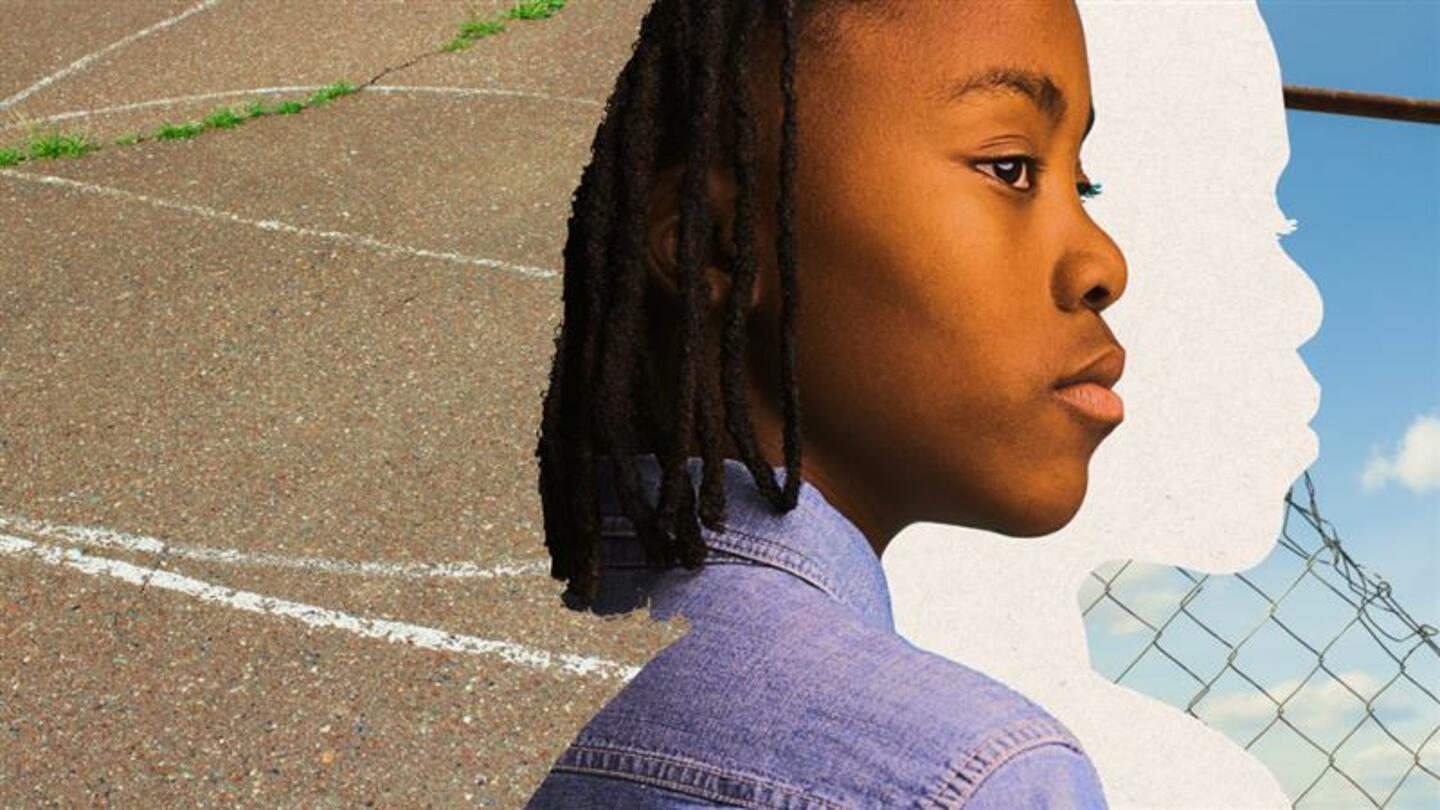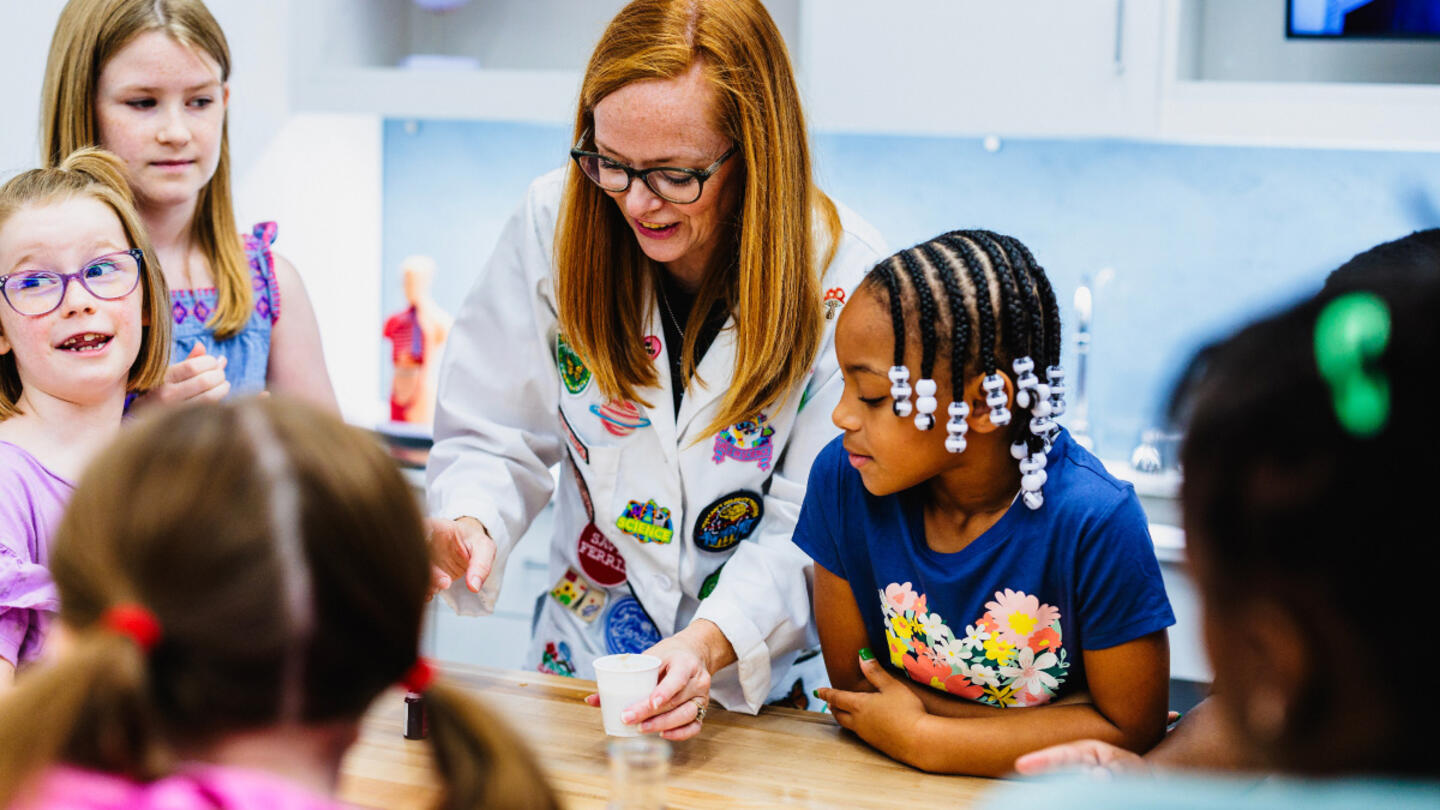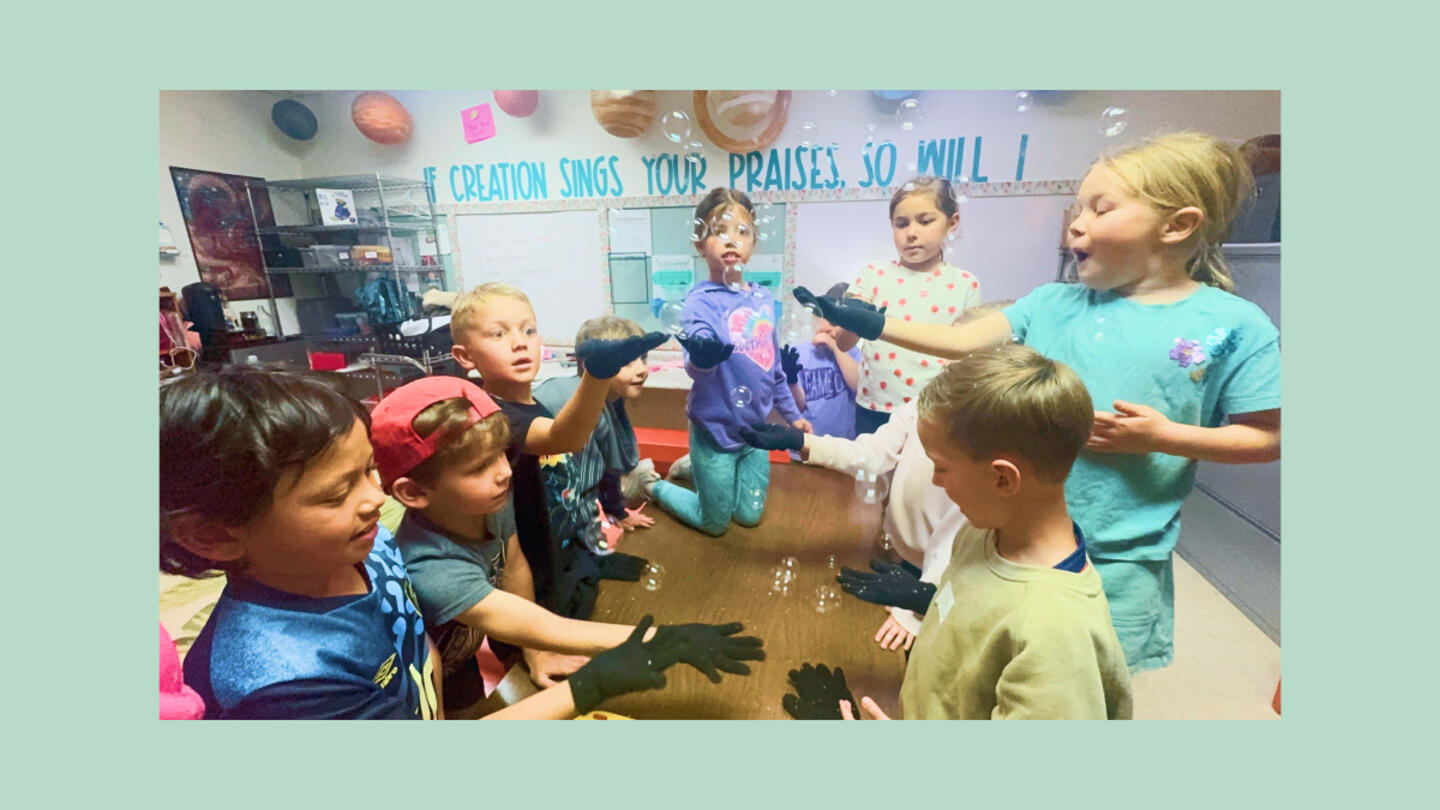Five years ago, Shayleen Halloran started asking everyone she knew if they wanted to start a school.
“Nobody was saying yes — nobody,” she said. She hadn’t wanted to start a school herself at the time. She was searching for someone else to create a school where she’d feel comfortable sending her daughter.
After years of asking dozens of people, a friend finally agreed to start a school with Halloran, who realized it was finally time to say yes to her own bold idea.
“I was trying to find someone else to do it,” she said. “But once I said yes, everything started falling into place.”
Soon, they brought on a third partner. Halloran, Ashleigh Gunningham, and Sarah Johnson are cofounders of Wonder Academy NWI, a learner-driven outdoor microschool where nature and curiosity power the learning. The school’s sole indoor space is a 36-foot geodesic dome.
Their first big question after they decided to take the leap: “Is this even possible?”
Mary Jo Fairhead faced the same dilemma when a friend suggested she start a school in Martin, South Dakota, near the Pine Ridge Reservation where she grew up. As a seasoned educator, she was troubled by the traditional school system’s preference for control over connection, but she wasn’t sure she was ready to create her own school.
“I told him, ‘But that’s impossible. I can’t do that,’” she recalled. “And he was like, ‘Is it really impossible?’”
With her husband’s support, Fairhead relocated her family and turned their home into a microschool — a small, innovative learning environment. She founded Onward Learning, a nontraditional microschool offering a personalized, love-based approach that celebrates curiosity, creativity, and independence.
Like many would-be microschool founders, Fairhead, Halloran, and the cofounders of Wonder Academy NWI were frustrated with the traditional school system for various reasons. While only some came from educational backgrounds, they were all parents deeply invested in their own children’s learning journeys.
So, how did they — and thousands of other microschool founders across the country — go from being frustrated parents and professionals to microschool founders?
Get to know your ‘why’
For founders, starting with a clear understanding of the “why” is essential. This clarity lays the foundation for every decision that follows, shaping the values, mission, and culture of the microschool. It also provides the necessary resilience to navigate the inevitable challenges of confronting a deeply entrenched system like traditional education.
A survey by the National Microschooling Center, a nonprofit supporting microschool founders, reveals the top three reasons for starting a microschool: to “enable children to thrive,” “offer education options relevant to the future,” and “provide opportunities to the systemically underserved.”
And while many founders cite frustration with the traditional education system, that alone is rarely enough to motivate such a bold decision. The key is to uncover the personal values behind that frustration.
While Fairhead was teaching seventh grade, the school planned a party for the day before Christmas break — but students with missing work weren’t allowed to attend. They had to catch up on assignments in a separate classroom.
“The kids put in that classroom were the ones that didn’t really have much of a home to go to during the break,” said Fairhead. “It not only broke my heart, but it made me mad.” She volunteered to oversee that classroom, turned on a movie, and let them have their own party.
“Those kids needed to be loved before they were sent home,” she said. “We don’t need to be continually punishing and punishing and punishing because they didn’t get their busy work done.”
Likewise, when she was a principal in a K-8 school, she had teachers asking her to discipline or suspend students — sometimes weekly — for things like tardiness or behavioral issues. Instead, she’d invite the kids into her office and ask them what was going on.
“Nine times out of 10, I could defuse the situation,” she said. “The kids felt good and could move on without a big behavior issue.”
For her, none of these experiences boiled down to behavioral issues. They were about the children in her care needing to feel loved despite their shortcomings — which is why she has infused everything she does at Onward Learning with love for her students.
“That doesn’t mean we don’t have expectations or that I don’t have hard conversations with kids,” she said. “I do, but they always start with ‘I love you,’ and they always end with ‘I love you, and we can do this together.’”
As a therapist, Halloran frequently worked with adults grappling with the lasting impact of schools that ignored their individuality, leaving them without a clear sense of identity.
“They would only know basically what the system had labeled them as, and that’s where a lot of anxiety and depression comes from,” she said. “So I started to think, ‘I don’t want my daughter to go into that.’”
Gunningham, an occupational therapist in a traditional elementary school, saw firsthand how schools often pushed children beyond their developmental abilities. And when Johnson, a former middle school teacher turned yoga instructor, went to enroll her daughter in preschool, she chose a school praised by the community, only to hear the teacher at orientation repeatedly say, “The kids are going to hate this, but we’re going to make them do it.”
These experiences, among others, led the founders of Wonder Academy NWI to agree that children need to discover who they are without the weight of external expectations — and realize that their worth is not defined by what they can or can’t produce.
Halloran explained that at Wonder, “Who you are is valuable. You don’t have to do anything, be anything, or produce anything to be valuable. You are valuable.”
Sign up for Stand Together's K-12 newsletter and get stories, ideas, and advice from changemakers who are transforming education across the country.
Choose a path that supports your ‘why’
Don Soifer, CEO and cofounder of the National Microschooling Center, explained that education entrepreneurs usually take one of three routes to establish their microschools: independently, in partnership with a larger organization, or through a provider network.
Onward Learning and Wonder Academy NWI are independent microschools, which are typically smaller, relationship-driven, and highly adaptable.
“Independent microschools can be anything — from meeting in a private home, a church annex, or a forest school,” said Soifer. “They are small, relationship-based schools. The beautiful thing is that you can truly build them around the relationships and the needs of the particular learners and families that you’re serving.”
While independent microschools are often the first model that comes to mind, other approaches can offer distinct advantages. Some microschools operate as partnerships between a host partner — such as a nonprofit, a corporation, a local municipality, or a religious institution — that provides resources like funding or facilities and a technical partner who manages teaching and learning. For example, Sparks Community Schools in Phoenix, Arizona, is a collaboration between Goodwill and Darla Baquedano, its director of education.
Founders seeking more structure and direction can join provider networks like Prenda, Acton Academy, or KaiPod. These networks often offer predesigned curriculums, operational frameworks, and ongoing support while still allowing room for customization — all of which can be invaluable for new founders.
In the early stages of planning, Halloran and her cofounders explored the idea of joining a provider network to streamline the process of starting their microschool. However, as they delved deeper into their vision, they realized the network didn’t align closely enough with their core values and educational goals.
Ultimately, clarity around their values led them to design Wonder Academy NWI as an independent microschool.
It’s never a solo journey
Even independent microschool founders don’t have to navigate the journey alone. Fairhead sought mentors locally and across the country to guide her through the process. One mentor from California focused on the practical side of building her school, helping her tackle essential elements like facilities, finances, and curriculum. He introduced her to the National Microschooling Center, where she found a wealth of free resources and support for her founding journey.
“The National Microschooling Center partners with prospective founders to help them with every step of the launch process, at no cost to microschools,” said Don Soifer.
Another mentor came into the picture after Fairhead researched schools she admired. She cold-emailed him about his model, and he ended up playing a key role in shaping the heart of her school, helping her create a love-based culture that resonated with parents and collaborators.
“Had I not had opportunities to meet people outside of my world here, there’s no way I would have felt confident enough to do it,” she said. “I always tell people, ‘If you’re wanting to do this, reach out. There are a lot of people — a lot more than you think — doing similar things that are willing to help you get it off the ground.’”
Closer to home, Fairhead assembled a diverse board of educators, parents, and even a grandmother — all of whom shared her vision. Together, they shaped Onward Learning’s mission, vision, and pillars, creating not just a school but a community grounded in connection and purpose.
Halloran and her team worked closely with the National Microschooling Center throughout their launch process, leaning on several experienced education innovators, including Ashley Soifer, cofounder and chief innovation officer at the center. She gave them the confidence to create a learning environment that didn’t exist in their area.
“For this group, it has really been about finding a place where all children can thrive,” said Ashley Soifer. “They also really wanted something outdoors. They couldn’t find what they were looking for in Indiana. It didn’t exist yet. It was something that they knew was possible, but they needed to be the ones to create it.”
Relish the small victories
Though not impossible, starting a microschool is a challenging endeavor. However, witnessing students’ growth and transformation makes it all worthwhile.
A 9-year-old joined Wonder Academy NWI after struggling with anxiety over standardized tests and bullying, which led her to lose weight and withdraw socially. The class had just discovered tadpoles in a puddle on the school grounds, sparking a multiday lesson on the life cycle of amphibians.
Everyone assumed the tadpoles would become frogs. Instead — to the amazement of students and teachers — salamanders emerged.
Within a week, the anxious student’s worries about tests faded. She no longer felt unsafe at school, captivated instead by the salamanders. Her curiosity took over, and she organized a craft activity to teach her peers about salamanders, showcasing newfound confidence and leadership her mother had never seen before.
Halloran’s advice for other would-be founders? “If you’re feeling the tug in your heart, it’s not going to go away,” she said. “So you might as well answer. You might as well just jump. You’ll figure it out.”
“Believe that you can do it,” said Fairhead. “Then lean on and reach out to people that have done similar things. Ask them questions. I have met so many incredible people doing so many incredible things. I would never have met them or understood what they were doing had I not sent cold emails or asked friends of friends to introduce me.”
The National Microschooling Center is supported by Stand Together Trust, which provides funding and strategic capabilities to innovators, scholars, and social entrepreneurs to develop new and better ways to tackle America’s biggest problems.
Learn more about Stand Together’s education efforts and explore ways you can partner with us.

‘We want these boys to know that regardless of where they come from, they still can be excellent.’

This colearning space has the potential to bridge the divide between public and private education.

New Johns Hopkins data shows homeschooling’s recent surge has transformed the education landscape.
Step 1: Find the best learning environment for your child. Step 2? Figure out how to pay for it.
